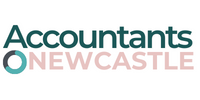In the competitive world of retail, effective accounting practices can make all the difference in driving business growth. From maintaining financial transparency to preventing fraud and detecting errors, retail accounting plays a crucial role in ensuring the success of a business. By tracking key metrics and implementing best practices such as using cloud-based accounting software and automated processes, businesses can make informed decisions and identify areas for cost-cutting and expansion. In this article, we will explore how retail accounting can drive business growth and answer some common FAQs on its importance. So, let’s dive in and discover the secrets to success in the retail industry!
Why is Retail Accounting Important for Business Growth?
Retail accounting is instrumental in driving business growth as it ensures financial transparency, compliance with tax regulations, and the development of a robust financial plan.
Financial Transparency
Maintaining financial transparency in retail accounting involves accurately recording financial transactions, analysing financial performance, and ensuring the integrity of financial records.
Accurate record-keeping is vital for retail businesses to track their cash flow, monitor expenses, and assess profitability. With proper documentation, making info easier and planning for the future becomes challenging. Performance analysis plays a crucial role in identifying areas of improvement, efficiency, and potential risks. Retailers can optimise their operations and achieve continuous growth by analysing key financial ratios and trends.
Maintaining the integrity of financial records is not just a legal requirement but also a cornerstone of financial accountability and trust. Upholding transparency builds credibility with stakeholders, including investors, creditors, and regulatory bodies. It demonstrates a commitment to ethical business practices and governance, enhancing the reputation and sustainability of the retail enterprise.
Investor and Stakeholder Confidence
Retail accounting contributes to investor and stakeholder confidence by providing in-depth financial analysis, demonstrating financial integrity, and mitigating tax liabilities effectively.
Retail accounting allows stakeholders to gain transparency into a company’s financial performance through accurate recording and reporting of financial transactions. This transparency plays a crucial role in fostering trust among investors, as they can make informed decisions based on reliable financial information. By adhering to best practices in accounting standards and regulations, retail businesses ensure that their financial statements are accurate and compliant. Effective tax management strategies within retail accounting help optimise tax liabilities, enhancing profitability and demonstrating responsible financial stewardship.
Fraud Prevention and Detection
Effective retail accounting practices include robust fraud prevention measures, advanced fraud detection techniques, and leveraging artificial intelligence for enhanced financial security.
Retail accounting is crucial in safeguarding businesses against financial misconduct and illicit activities. Companies can significantly reduce the risks of fraud by implementing strong internal controls, employing data analytics for monitoring transactions, and conducting regular internal audits. Integrating machine learning algorithms can help detect anomalies and suspicious patterns in financial data, enabling proactive measures to be taken.
What are the Key Metrics to Track in Retail Accounting?
Tracking key metrics in retail accounting involves analysing financial performance, evaluating pricing strategies, and conducting in-depth financial analysis to drive business growth.
Financial analysis is crucial in retail accounting as it helps understand trends, identify profit margins, and manage cash flow efficiently. By analysing the balance sheet, income statement, and cash flow statement, businesses can make informed decisions to optimise their financial performance.
Regarding pricing strategies, monitoring gross margin, markup percentage, and inventory turnover ratio are essential to ensure profitability and competitiveness in the market. Utilising cost accounting methods can help set prices that cover expenses and generate desired profits.
Best Practices for Retail Accounting
Implementing best practices in retail accounting involves:
Use a Cloud-Based Accounting Software
Utilising a cloud-based accounting software solution offers retail businesses flexibility, scalability, and real-time access to financial data for streamlined accounting processes.
One of the key advantages of using cloud-based accounting software in the retail sector is its flexibility. This software allows retailers to access their financial data from anywhere, making it convenient for owners and managers to stay updated on their finances even while on the go.
The scalability feature of cloud-based accounting software is beneficial for retail businesses that experience fluctuating levels of transactions. This software can easily adapt to the business’s changing needs, whether during a slow period or a busy sales season.
The real-time access to financial data that cloud-based accounting software offers enables retailers to make quick and informed decisions. With instant access to up-to-date financial information, businesses can react promptly to market changes and seize opportunities as they arise.
Implement Automated Processes
Automating accounting processes in retail operations enhances efficiency, reduces manual errors, and frees accounting professionals to focus on strategic financial analysis and decision-making.
By incorporating automated systems into the financial workflow, retail establishments can streamline operations and improve accuracy. With automation, routine tasks such as data entry, reconciliation, and invoice processing can be managed seamlessly, allowing for a quicker turnaround time and minimising the risk of errors.
Efficiency improvements also extend to enhanced data management, as automated accounting systems enable real-time access to financial information, facilitating quicker decision-making processes and more informed strategic planning.
Regularly Reconcile Accounts
Regularly reconciling bank statements, credit card statements, and financial records is essential in retail accounting to ensure accuracy, identify discrepancies, and maintain financial integrity.
Account reconciliation is not just a routine task but a critical process that provides insight into the financial health of a retail business. Cross-verifying transactions between different accounts allow discrepancies to be promptly spotted and rectified, preventing potential errors or fraud. Consistent reconciliation practices also help track financial trends, analyse cash flow patterns, and ensure compliance with regulatory standards.
Moreover, accurate reconciliation plays a key role in decision-making processes by providing reliable data for budgeting, forecasting, and strategic planning. It acts as a safeguard against financial mismanagement. It helps in detecting any operational inefficiencies that may impact the bottom line. With regular reconciliation, a business can avoid facing monetary discrepancies, misreporting of earnings, and overall loss of financial control.
Separate Personal and Business Finances
Maintaining a clear distinction between personal and business finances is crucial in retail accounting to uphold financial transparency, ensure compliance, and facilitate accurate financial analysis.
Separating personal and business finances is vital for retailers, enabling owners to track income and expenses more effectively. By keeping these two entities separate, accounting records remain organised and identify business profits and losses. This practice helps ensure compliance with tax laws and regulations but also aids in making informed financial decisions based on accurate data. Maintaining a clear boundary between personal and business finances is a cornerstone of sound retail accounting practices.
Monitor Inventory Levels
Continuous monitoring of inventory levels in retail accounting enables effective cost-control measures, informed pricing strategies, and inventory turnover optimisation to drive profitability.
By regularly tracking the quantity and value of products on hand, retailers can proactively identify trends and patterns in consumer demand, allowing them to adjust their ordering and stocking strategies accordingly. This proactive approach ensures that shelves are adequately stocked with high-demand items while reducing overstocking of slow-moving inventory.
Implementing a just-in-time inventory system can help minimise storage costs and prevent potential losses due to excess inventory. By closely monitoring inventory turnover rates, retailers can improve cash flow, reduce storage expenses, and increase operational efficiency.
Keep Accurate Records of Sales and Expenses
Maintaining precise records of sales and expenses in retail accounting is essential for conducting thorough financial analysis, ensuring financial transparency, and evaluating business performance effectively.
Accurate record-keeping serves as the foundation for financial analysis in retail accounting. By documenting every transaction meticulously, businesses can extract valuable insights into revenue streams, cost structure, and overall financial health. This data facilitates strategic decision-making and enables comparison against industry benchmarks and historical trends.
The practice of maintaining detailed records enhances financial transparency within the organisation. Transparent financial reporting is vital for building trust with stakeholders, including investors, creditors, and regulatory bodies. It demonstrates a commitment to integrity and helps safeguard against fraud or misrepresentation.
Utilise Financial Reports to Make Informed Decisions
Harnessing financial reports in retail accounting enables businesses to make data-driven decisions, optimise pricing strategies, and enhance overall financial performance.
- By examining financial reports, retailers gain valuable insights into their cash flow, revenue trends, and expenses, allowing them to identify areas of strength and opportunities for improvement.
- These reports are crucial in monitoring sales performance, inventory turnover, and profit margins, guiding strategic decisions for purchasing, pricing, and promotional activities.
- Analysing financial data helps assess marketing campaigns’ effectiveness, evaluate customer acquisition costs, and forecast future financial outcomes.
How Retail Accounting Can Drive Business Growth
Retail accounting catalyses driving business growth by:
Identify Profitable Products and Services
Analysing financial data in retail accounting enables businesses to identify and capitalise on profitable products and services, driving revenue growth and enhancing financial performance.
Retail accounting plays a pivotal role in deciphering which products and services yield the highest returns, guiding decisions to allocate resources effectively. By scrutinising sales trends, cost structures, and profit margins, retailers can pinpoint areas for improvement and optimisation.
Financial analysis in retail accounting involves tracking key performance indicators (KPIs) such as gross margin, inventory turnover, and return on investment to assess profitability. This in-depth analysis facilitates well-considered choices, enabling businesses to understand the financial health of different product lines and make strategic adjustments for long-term sustainability.
Determine Optimal Pricing Strategies
Retail accounting is crucial in determining optimal pricing strategies by conducting thorough financial analysis, evaluating market trends, and implementing pricing optimisations for sustainable business growth.
By leveraging the insights gained from retail accounting practices, businesses can make informed decisions on how to price their products or services competitively in the market. This involves analysing cost structures, profit margins, and customer demand to balance maximising revenue and maintaining customer satisfaction.
Furthermore, retail accounting enables companies to track the performance of different pricing strategies over time, allowing them to fine-tune their approaches based on real-time data and feedback. By staying attuned to market dynamics and consumer behaviour, organisations can adapt their pricing models to achieve optimal profitability and market share results.
Identify Areas for Cost-cutting
Incorporating cost-cutting measures based on financial analysis in retail accounting allows businesses like construction companies to enhance profitability, improve efficiency, and achieve continuous growth.
Identifying cost-saving opportunities within a retail accounting framework helps organisations optimise their financial health and streamline operations for long-term success. By meticulously analysing expenses, businesses can pinpoint areas where expenses can be minimised without compromising quality or customer satisfaction. Implementing these strategic cost-reduction tactics enables companies to allocate resources effectively, reinvest in core areas, and remain competitive.
Plan for Expansion and Growth
Creating a comprehensive financial plan through retail accounting is essential for strategically planning business expansion, ensuring financial stability, and fostering sustainable growth.
Retail accounting plays a crucial role in evaluating a business’s current financial health and identifying improvement areas. By analysing sales data, inventory turnover, and profit margins, retailers can make more informed decisions to optimise operations and drive profitability.
Efficient accounting practices help track expenses, manage cash flow, and comply with financial regulations. This ensures transparency and accountability and enhances the business’s credibility.
Forecasting future trends, setting realistic goals, and establishing contingency measures are integral when crafting a financial plan. Retail accounting provides the necessary data and insights to facilitate well-considered choices and mitigate risks effectively.
Adapting to Market Trends
Retail accounting involves:
- We are adapting to market trends by conducting in-depth financial analysis.
- We are adjusting pricing strategies.
- We are proactively responding to changes in consumer preferences to drive business success.
To effectively navigate the dynamic landscape of the retail industry, businesses rely on robust accounting practices to derive insights from financial data that inform strategic decision-making. Companies can identify patterns and indicators of changing market trends by analysing key performance indicators and financial statements.
Price adjustments play a crucial role in responding to market shifts, with retail accountants using cost analysis and competitive benchmarking to optimise pricing strategies for maximum profitability. Staying ahead of consumer behaviour changes requires continuous monitoring and swift adaptation, allowing businesses to align their offerings with evolving market demands.
Conclusion
Adhering to best practices in retail accounting promotes financial integrity, strengthens business accounting practices, and fosters a culture of financial excellence that propels sustained growth and success.
By implementing proper financial controls and reporting mechanisms, businesses can mitigate risks, ensure transparency in financial operations, and build trust with stakeholders. Standardising accounting procedures based on industry best practices not only streamline financial processes but also enhances decision-making capabilities for strategic planning and resource allocation.
FAQs on Retail Accounting Importance
How does retail accounting contribute to strategic decision-making?
Retail accounting is crucial in facilitating strategic decision-making by providing valuable financial analysis insights, fostering financial transparency, and enabling data-driven choices for business advancement.
Through accurate record-keeping and meticulous financial reporting, retail accounting arms decision-makers with the necessary tools to assess the business’s financial health and make informed choices. Managers can identify trends, anticipate challenges, and seize opportunities in the dynamic retail landscape by analysing key performance indicators, cash flow patterns, and profitability metrics.
Emphasising transparency within the accounting processes ensures stakeholders have access to reliable financial information, bolstering trust and credibility. This trust is crucial for cultivating fruitful relationships with investors, creditors, and other key partners, enabling the business to secure funding and support for strategic initiatives.
Can retail accounting software adapt to changing regulatory requirements?
Retail accounting software is designed to adapt to changing regulatory requirements, ensuring compliance, data accuracy, and efficient reporting to support businesses in meeting evolving legal standards.
As businesses navigate the complex landscape of financial regulations, retail accounting software plays a crucial role in maintaining adherence to these standards. This software streamlines processes by leveraging advanced technology, such as automated data entry and real-time reporting features, while ensuring accuracy and compliance.
The dynamic nature of regulatory requirements necessitates constant updates and enhancements to the software, allowing businesses to adjust seamlessly. Businesses can mitigate risks and improve overall financial management with tailored functionalities to address specific compliance needs.
Are there specific industries where automated processes are more beneficial in retail accounting?
Certain industries in retail accounting benefit significantly from automated processes, enhancing operational efficiency, reducing errors, and enabling real-time data insights for well-considered choices.
Automation in retail accounting streamlines routine tasks such as inventory management, sales tracking, and financial reporting. By automating these processes, companies can save time and resources, allowing employees to focus on more strategic tasks. Automated systems can minimise human errors, ensuring accurate financial records and compliance with industry regulations. The ability to generate real-time analytics enables businesses to make data-driven decisions promptly and adapt quickly to market changes.
How do businesses choose the right cloud-based accounting software for retail operations?
Selecting the ideal cloud-based accounting software for retail operations involves considering key selection criteria such as scalability, integration capabilities, data security, and customisation options to meet specific business needs effectively.
Scalability in accounting software is crucial for businesses to accommodate growth without system constraints or disruptions. Seamless integration with existing tools and platforms ensures smooth data flow and enhanced operational efficiency. Robust data security measures are necessary to protect sensitive financial information from cyber threats.
Customisation options allow businesses to tailor the software to fit their unique requirements, enhancing user experience and task efficiency. By prioritising these factors, retailers can maximise the benefits of cloud-based accounting software and achieve continuous growth in their operations.





